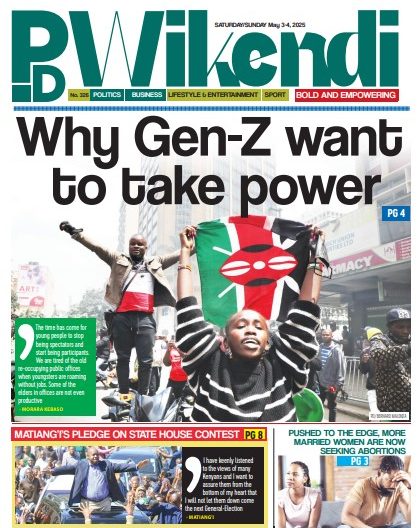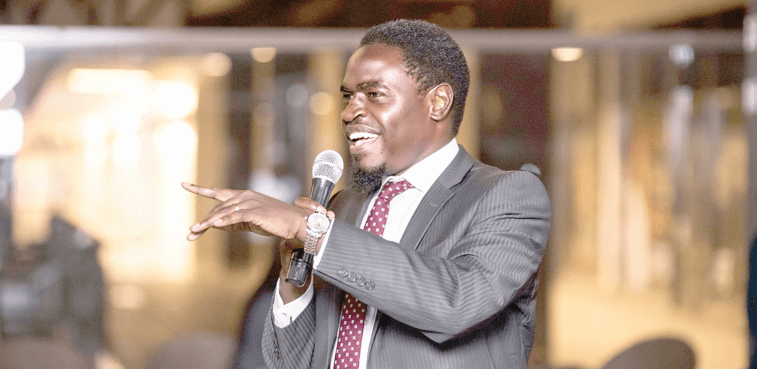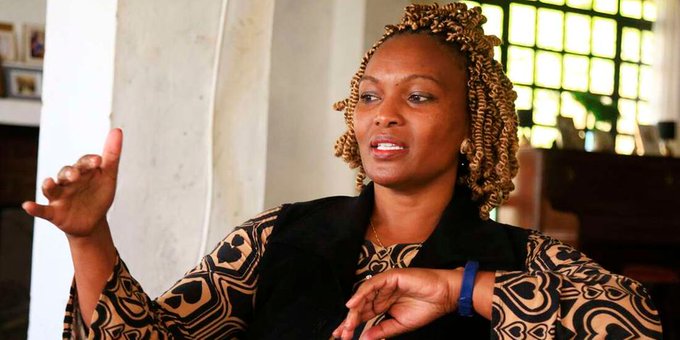Gen Zs blow strong wave for generational change in Kenya

A silent strong wind, perpetuated by youthful Kenyans, is blowing across the country, calling for generational change in the next General Election scheduled for 2027.
Born between the mid-1990s and early 2010s, the digital natives are leveraging technology and social media to challenge the entrenched political establishment, aiming to reshape the nation’s future as the 2027 general elections approaches.
The youths believe that the old guards cannot be relied upon to enhance education and political awareness, address the growing concerns about economic inequality and corruption, and the desire for a more equitable and prosperous future.
“Only generational change in leadership will address the realities of joblessness, the rising cost of living and broken promises. The Finance Bill protests showed our strength, our voice, and our unity—powered not by politicians, but by purpose,” says Vincent Oduor, the chairman of St Paul University Students’ Association. Oduor says the youth in the country want leaders who understand them as well as reflecting their struggles and dreams.
“We’ve organized, mobilized, and risen above tribal politics. This is not just a moment, it is a movement,” he says.
Another youth, Fidel Wandiga of Jomo Kenyatta University Student Association, says the Gen Z are deeply concerned with long-term outcomes, be they climate action, economic opportunity, or education reforms.
“We want leaders who are visionary, not trapped in past ideologies or tribal politics. We see leadership as a platform to solve problems, not just to rule. We expect to be heard and included — not just during campaigns but throughout the governance cycle,” Wandiga says.
Though the youth-led uprising lacks centralized leadership and instead thrives on decentralized organization, with individuals and groups coordinating actions through digital platforms, their call for generational change has become more clearer and louder than ever before.
Interviews with a cross section of youth in parts of the country gives the impression that the so-called Generation Zs believe that only generational change, where all the old guards would be swept out of power could guarantee Kenya the required changes.
A growing movement to register young voters, support youth candidates, and challenge the dominance of the “old guard” in Kenyan politics is being pushed, a generational shift that signals a potential transformation in the country’s political landscape, driven by a desire for transparency, inclusivity, and progressive policies.
Youngsters led by youthful lawyer Morara Kebaso, a dynamic Kenyan political leader who also happens to be a businessman, hopes to bring a fresh perspective to the country’s political landscape.
Kebaso who is the founder of Injection of National Justice, Economic and Civic Transformation (INJECT) says his party will offer free party tickets for any youth who wishes to run for elective public office.
“The time has come for young people to stop being spectators and start being participants. We are tired of the old reoccupying public offices when youngsters are roaming without jobs. Some of the elders in offices are not even productive, some are grappling with various forms of ailments yet they have refused to leave offices. The youth must stop spending time fighting each other and instead support each other in the quest for better governance,” stated Morara.
“Gen Z is more informed, more connected, and increasingly vocal. We must now convert that energy into political power and avoid negative energy on social media. Let’s also be careful because a few individuals operating fake accounts on socials are paid to taint us,” added Morara. The lack of structure has made it challenging for authorities to suppress the movement, as it doesn’t rely on identifiable leaders.
As the voice of the generation grows louder in the country’s political discourse, the youths are committed to taking up leadership roles in renewed bid to remove old guards whom they describe as unyielding.
For decades, Kenya’s political scene has been largely controlled by individuals over the age of 50, many of whom have held public offices across multiple administrations. This has created a deep generational gap, with many young people feeling excluded from decision-making processes that directly affect their future.
Tired of the older generation’s political domination over a prolonged period of time, rising frustration over unemployment and economic inequality, the youths are leaving nothing to chance to get into positions of power to control the ‘sinking ship’.
A week ago, retired President Uhuru Kenyatta attracted the ire of allies of President William Ruto when he called for a youth-led revolution, challenging young people to stand up for good governance and shun short-term political gains.
Describing the period as an “independence moment”, he said the youth were the last line of defence in the battle to save the heart and soul of Africa for the sake of future generations.
Delivering the keynote address at the second annual Guild Leaders’ Summit 2025 at Makerere University in Kampala, Uganda, Kenyatta urged the youth to embrace their role as freedom fighters of this era. “You have the numbers, you have the time and you have the energy to get involved and stay involved in governance discussions until you effect the changes you wish to see,” he noted.
And this week, it was none other than Siaya Governor James Orengo, who while raising the red flag over alleged attempts to rig the next general election, challenged the Gen Zs to come out in large numbers to save the country.
“I am prepared to go back to jail, to go back to the streets. This is not a country to be proud of. Now, the young people of Gen Z, you have to come out, and we are prepared to join you. Our institutions are under trial,” Orengo reportedly said during the groundbreaking ceremony of the Boro Maternity facility in Central Alego, Siaya.
Orengo, while accusing President Ruto’s government of orchestrating a plot to rig the upcoming 2027 general election, claimed that the last free and fair election Kenya had was in 2002.
“Unless we are prepared to fight for what is in the Constitution as a matter of right, Kenya is going to lose direction. I am ready to go back to jail, I am prepared to go back on the streets. This is not a country to be proud of,” Orengo observed.
As the 2027 elections loom, the youths have not been merely protesting—they are organizing for political change.
With recent social movements and online campaigns having shown the strength of youth activism in Kenya, the youthful lawyer who has already declared to vie for presidency in bid to unseat President William Ruto insists that youths should support each other to ensure that more youngsters occupy elective positions going forward.
He noted that the social media powerful tools can be key in mobilization, protest, and civic education and called on them to avoid funding from the corrupt.
“We are the change that we want to see. Don’t elect anyone who has no integrity,” added Morara.
Political analyst Ngure Kang’ara says there is a generational revolution in the country’s politics with young people ready to take the mantle from the old guard. He noted that politics in Kenya has previously been dominated by the old and rich people with economic portfolios spanning decades but the tide has since changed in the wake of the Gen Z uprising.
“Things have changed and the old is now at the edge of being past tense. What was previously seen as a political culture of the old being in positions of influence all the time has been changed. The youths have their eyes wide open and are now set to begin making important decisions at the right table,” said Kang’ara.
However, the transition from activism to political leadership is not without challenges. High campaign costs, entrenched political networks, and limited access to party structures have kept many young people at the periphery of mainstream politics.
“Let’s go international and embrace what other countries do. Fundraise publicly and don’t shy away from requesting for help on social media. Instead of going for dirty money from the corrupt, ask the public to fundraise without fear or shame,” stated Morara.











